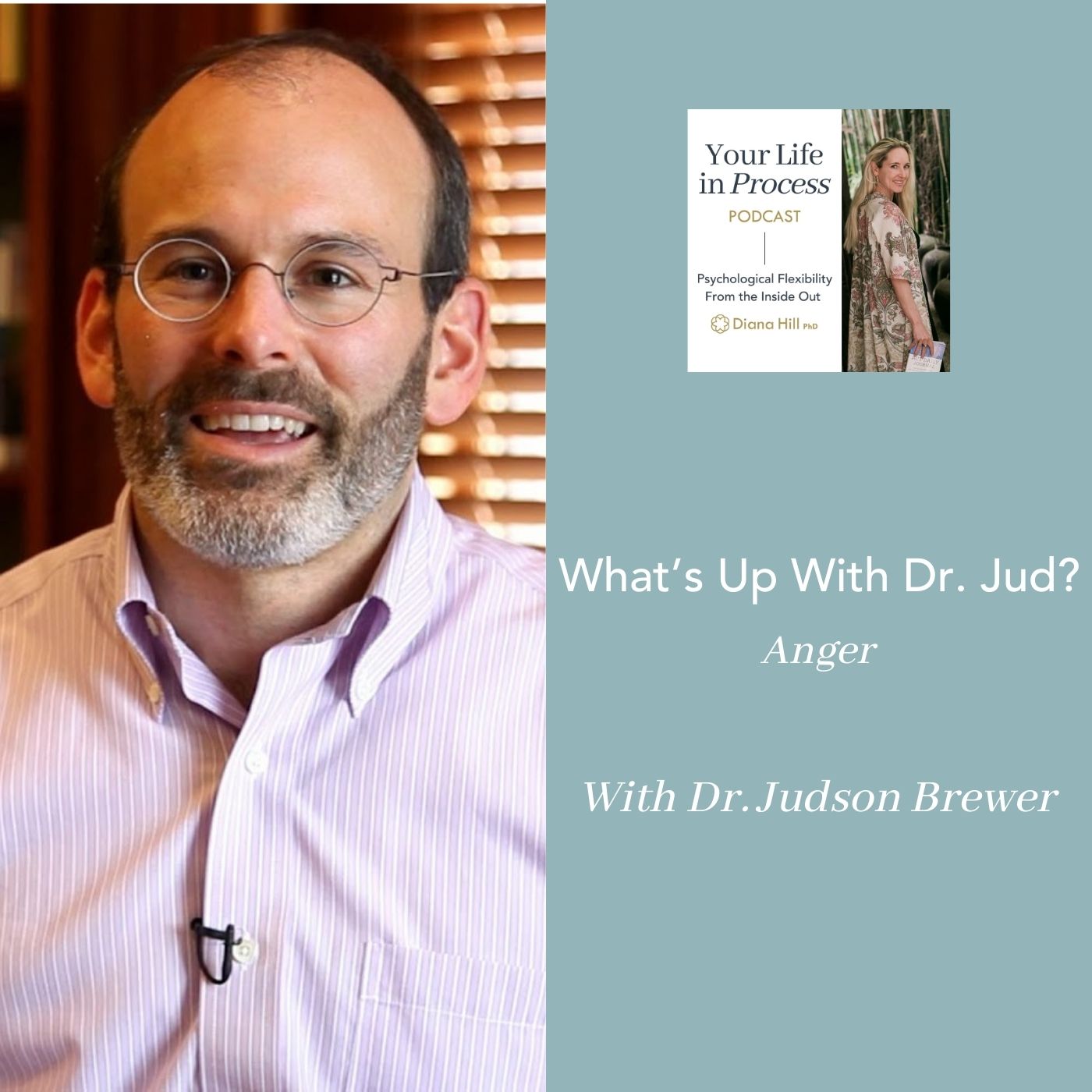Are you distracted by your phone or digital devices? Do you find yourself multitasking and feeling scattered? In this episode, you will learn how to reclaim your attention from digital distraction with mindfulness, behavioral neuroscience, and tools from ACT. Join Dr. Judson Brewer and Dr. Diana Hill to learn strategies to get re-focused and engaged in what matters most.
About Dr. Judson Brewer
Jud Brewer MD PhD (“Dr. Jud”) is a New York Times best-selling author and thought leader in the field of habit change and the “science of self-mastery”, having combined over 20 years of experience with mindfulness training with his scientific research therein. He is the Director of Research and Innovation at the Mindfulness Center and associate professor in Behavioral and Social Sciences and Psychiatry at the Schools of Public Health & Medicine at Brown University. He is also the executive medical director of behavioral health at Sharecare Inc. and a research affiliate at MIT. A psychiatrist and internationally known expert in mindfulness training for addictions, Brewer has developed and tested novel mindfulness programs for habit change, including both in-person and app-based treatments for smoking, emotional eating, and anxiety. He has also studied the underlying neural mechanisms of mindfulness using standard and real-time fMRI and EEG neurofeedback. He is the author of The Craving Mind: from cigarettes to smartphones to love, why we get hooked and how we can break bad habits and the New York Times best-seller, Unwinding Anxiety: New Science Shows How to Break the Cycles of Worry and Fear to Heal Your Mind. Follow him on Twitter @drjudbrewer
Key Takeaways
- Awareness of how technology is affecting your engagement in your life is the first step in reclaiming your attention.
- Technology is designed to be intermittently reinforcing and your attention is an economic commodity to be fought for.
- You can take back your attention by breaking the cycle of distraction habits, which requires regular practice of mindfulness.
- Notice your own disenchantment with distraction. How does it feel for you to get sucked in?
- Notice what it feels like to be fully present. How does it feel when you are fully present in a conversation or in your body movement?
Related Resources
- Download Your Daily Practice for this episode
- Find out what kind of Striver you are and get your free Skillful Striving Toolkit
- Learn More About Dr. Jud
- Read Dr. Jud’s books: The Craving Mind and Unwinding Anxiety
- Listen to Diana Hill interview Prince Ghuman, author of Blindsight.
- Listen to Diana Hill interview Anna Lembke, author of Dopamine Nation.
- Sponsor: Lightfully Behavioral Health
Diana’s Events
- Reserve your spot in Diana’s Reset and Restore Retreat in Costa Rica in 2023!
- Sign up for Diana’s From Striving to Thriving Summit!
- See Diana at an upcoming event
Connecting With Diana
Thank you for listening to Your Life in Process! Subscribe to the podcast for free on Apple Podcasts, Spotify, Google Podcasts. If you have any questions or feedback you can contact Diana by email podcast@yourlifeinprocess.com or leave Diana an audio message at (805) 457-2776. Follow Diana at YouTube, Instagram, LinkedIn, Facebook, and Diana’s website.
Thank you to the team Craig, Angela Stubbs, Ashley Hiatt, and Abby Diehl. Thank you to Benjamin Gould of Bell & Branch for your beautiful music.
Remember when you become psychologically flexible, you become free.
Episode Segments
- [00:00] – Introduction
- [01:30] – Sponsor: Lightfully Behavioral Health
- [02:30] – Meet Dr. Jud’s Cats
- [03:17] – The Role of Attention Economy in Distraction
- [07:33] – Technology and Intermittent Reinforcement
- [10:44] – How To Use Behavioral Neuroscience to Change Your Phone Use
- [11:38] – The Myth of Multitasking
- [14:42] – The Key to Breaking Your Distraction Habit
- [17.22] – How to Do Your Own Digital Detox
- [20:16] – Intrinsic Motivation
- [21:26] Diana’s Upcoming Events
- [21:51] – Grounding in Nature
- [24:25] – The Neuroscience of Mind Wandering
- [26:47] – Dr. Jud’s Takeaways
- [29:54] – Diana’s Takeaways
- [31:49] – ACT Processes to Enhance Your Attention
- [36:16] – Your Daily Practice
- [37:41] – Connect With The Podcast

+ show Comments
- Hide Comments
add a comment